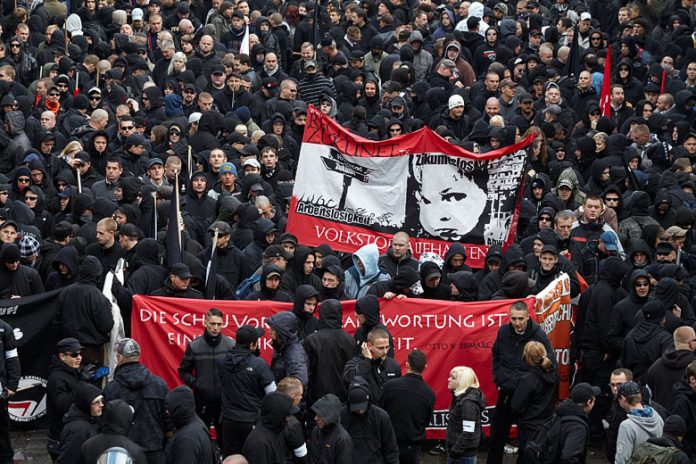Today, the Commission responds to a new survey by the EU Fundamental Rights Agency which finds that 9 out of 10 European Jews feel Antisemitism has increased over the past five years.
The results of the EU Fundamental Rights Agency’s latest survey on Antisemitism are particularly worrying: 85% of European Jews consider Antisemitism to be the biggest social or political problem in their home country. Other figures, amongst others, show that Antisemitism is pervasive and is having an impact on the daily lives of European Jews throughout the EU:
89% of Jews think Antisemitism is most problematic on the internet and on social media;
28% of respondents have been harassed at least once in the past year;
79% of Jews who experienced antisemitic harassment in the past five years did not report this to the police or another organisation;
34% avoid visiting Jewish events or sites because they do not feel safe;
38% have considered emigrating because they did not feel safe as Jews in Europe;
70% consider that efforts by Member States to combat Antisemitism are not effective.
“I’m deeply concerned about the growth of antisemitism as concluded by the report of the Fundamental Rights Agency. It is essential that we combat this scourge forcefully and collectively. The Jewish community must feel safe and at home in Europe. If we cannot achieve this, Europe ceases to be Europe,” said First Vice- President Frans Timmermans.
“70 years after the Holocaust, I am deeply saddened that 9 out of 10 Jews in Europe say that Antisemitism has increased over the past five years. The Jewish community should feel at home and safe in Europe, whether they are on the way to the synagogue or surfing online. The Commission is acting together with Member States to counter the rise of Antisemitism, to fight holocaust denial and to guarantee that Jews have the full support of the authorities to keep them safe,” added Věra Jourová, European Commissioner for Justice, Consumers and Gender Equality.
The results of today’s survey confirm the importance of the work the European Commission has been doing, and is continuing to do, to counter Antisemitism.
Commission’s response to Antisemitism
In response to rising Antisemitism, the Commission appointed in 2015 a Coordinator on combating Antisemitism to liaise with Jewish communities and to strengthen cooperation with organisations working in that field.
The increase of Antisemitism in Europe is particularly worrying in the online sphere, as today’s study shows. Since 2016 the Commission has worked intensively to tackle this challenge with the Code of Conduct on illegal online hate speech. Major IT-companies (Twitter, YouTube, Facebook and Microsoft) have agreed to review illegal hate speech flagged to them within 24 hours and remove it where necessary. In the course of 2018, Instagram, Google+, Snapchat and Dailymotion also joined the Code of Conduct. The results of this action will again be evaluated early next year. More recently, the Commission proposed a legislation to ensure that online terrorist content is removed within one hour following a removal order from the national competent authorities.
In June 2016, the European Commission also launched the High Level Group on combating Racism, Xenophobia and other forms of Intolerance to step up cooperation and coordination, to better prevent and combat hate crime and hate speech. It brings together all 28 EU Member States, international organisations and civil society organisations. Through this network, the Commission is working on addressing the underreporting issue by improving standards for recording hate crime.
In 2016 the Holocaust Remembrance Alliance, of which 25 EU countries are members, adopted a definition on Antisemitism, which has become the basis of our work. On 29 November 2018, the EU acquired a Permanent International Partnership with the International Holocaust Remembrance Alliance. The participation of the EU in this international body will allow for closer cooperation on combating Holocaust denial and preventing racism, xenophobia and Antisemitism.
However, the obligation to protect EU citizens lies first and foremost with the Member States themselves. In that light it is important to note that on 6 December 2018, all EU countries unanimously adopted a “Declaration on the fight against Antisemitism and the development of a common security approach to better protect Jewish communities and institutions in Europe” which is an important signal showing that the EU and each of its Member States stand side by side with the Jewish community to guarantee their safety and well-being. Member States are also called to use the International Holocaust Remembrance Alliance’s definition of Antisemitism as a guidance tool, which would be an important step in the fight against Antisemitism.

